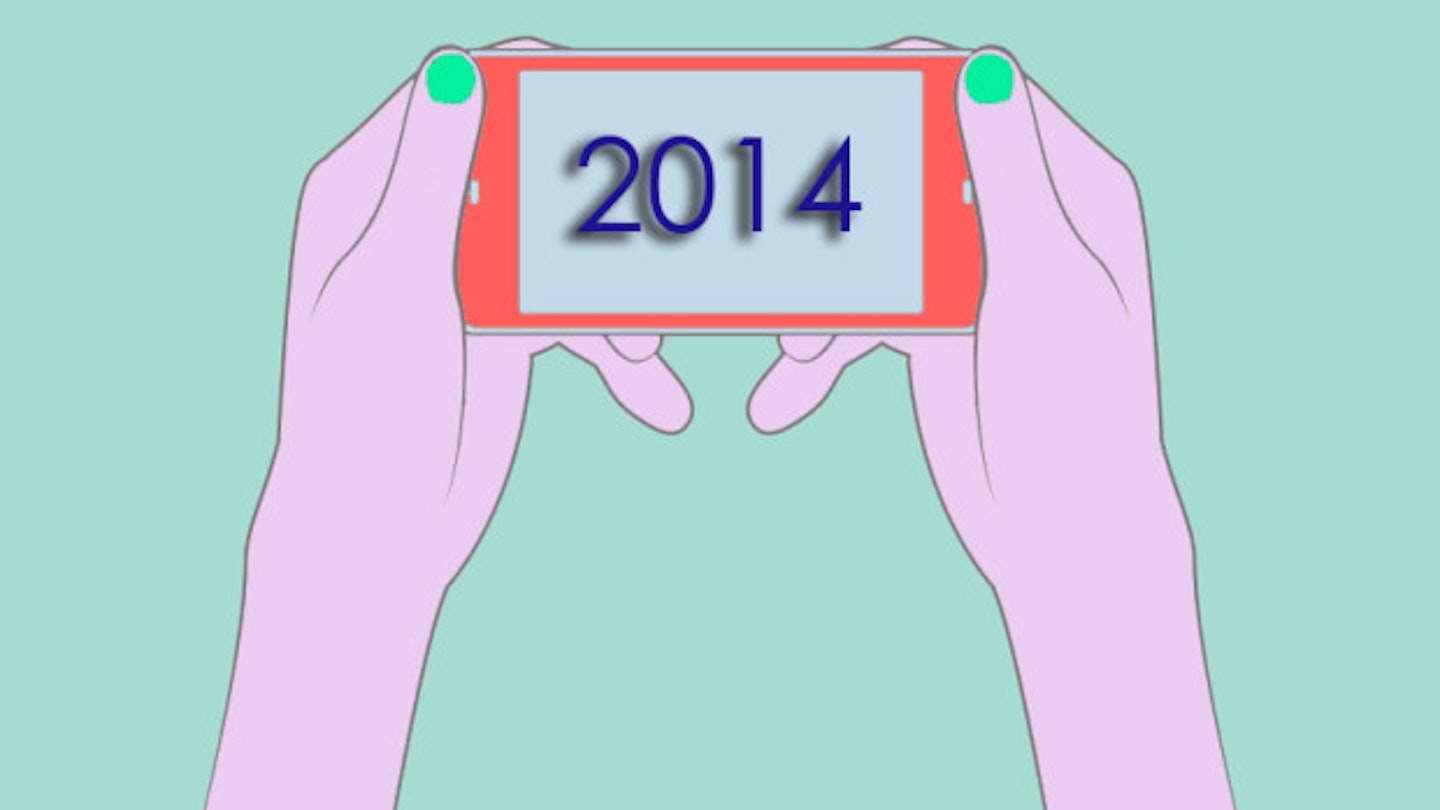2014 was the year our phones never left our hands. Because this was the year we retweeted Ellen’s Oscars selfie, watched ice bucket challenges, helped Kim Kardashian (almost) break the internet and bumped into lamp posts listening to Serial.
It’s also the year tech started to seep into real life (that’s IRL for nerds) like never before. I don’t just mean getting round to buying an iPad. Well, that too. What I really mean is tapping our contactless cards in Tesco, going on disastrous Tinder dates and ordering four Ubers in three days.
Cards got contactless
Like Tinder and Uber, there was a lot more contactless card action happening in London than elsewhere in the country especially when the tube jumped on the bandwagon in September. Unsurprisingly, London had the edge catching up to the tech world.
Try to tap-to-pay for something under £20 outside the M25 and you may as well have jumped over the counter and started kicking the cashier’s shins. Barclaycard’s MD for Digital Consumer Payments, Mike Saunders, told The Debrief: 'Manchester, Bristol and Birmingham are leading the way for the rest of the UK. There’s a steady increase happening which we’re confident will continue in 2015.'
Mainstream-ish in 2014, then, but next year even your mum will be on it.
The iPhone got massive
It’s no secret that smartphones aren’t built for women’s hands anymore and now this year’s iPhone 6 and iPhone 6 Plus are bigger than ever too. Don’t want to make calls on a mini tablet? The 6 is manageable, once you get used to it, otherwise our options are now last year’s 5s or switching to something regular-sized like Sony’s Z3 Compact.
Apple’s other big news was its Watch, one of the best designed of the ‘wearables’ we’ve been hearing about but not actually seeing that much of in 2014. Women could make or break wearable tech - we adorn our body more than men as it is. So it’s a good sign that Apple’s smartwatch, which will let us read texts, skip music and track our fitness, will come in different sizes and materials when it launches in 2015.
READ MORE: Your Facebook Will Soon Be Able To Shame Your Drunken Alter Ego Into Behaving
Instagram got ads
iPhone 6 panic aside, we were all a bit concerned when Instagram brought adverts across the pond in September. But so far we’ve barely noticed sponsored posts and when they do pop up, they’re well-curated and easy to ignore.
Essentially, some of the pretty pics we favourite are now in our feeds because they’re paid to be. It’s a free service and, for now, we reckon it’s a fair trade.
**Trolls got told **
Still, it wasn’t all Insta-Waitrose. If only. At times the internet was a dangerous place for us to dare have a body or worse, an opinion as a woman. Do you have one or more of these? Well, some men - not all - had a problem with that this year.
In January, the first batch of convicted Twitter trolls got 18 weeks in prison for posting rape and death threats to MP Stella Creasy and feminist Caroline Criado-Perez. By September, the same sentence was given to a third troll but shortly after presenter Chloe Madeley received rape threats in October, Justice Secretary Chris Grayling set out plans to increase the prison time to up to two years.
That’s a welcome move. But the overriding message this year has been that platforms such as Twitter and Facebook, which allows groups such as Women Who Eat on Tubes to continue, don’t have a duty of care to users facing any manner of abuse, leaving it to the courts to intervene in the most serious cases. This can’t be the long term plan, right?
READ MORE: Why 2014 Was The Year That Women In Sci Fi Kicked Ass
**Photos got leaked **
And in August came the Fappening, the iCloud leaks of nude, female celebs posted all over the internet, closely followed by the Snappening in which Snapchat and related apps were hacked in order to do the same for regular women. Why did most of us pay way more attention to this than say, 2013’s NSA revelations?
Graham Jones, internet psychologist, says it’s probably 'due to the psychological defence mechanisms we have in place which ensure that we can cope with the world without getting anxious. In psychological terms this is known as defensive attribution. We seem to be saying; "it was partly their fault - it will never happen to me". So, we tend to think that people who fall prey to privacy issues only have themselves to blame. It means that we feel safe and protected.'
Of course when celebrities’ naked photos started appearing on the internet, the photos looked ve-ery similar to the ones we’d been taking ourselves - minus three or four dress sizes. So this defence mechanism lost a lot of its power. Our advice for snapping in 2015? Either use iCloud with caution or better yet, hand out lipstick-stained Polaroids instead.
So tech frustrated us just as much as it saved our skins in 2014. But hey, at the end of it, we’ve got some cracking Tinder stories, we’ve totally figured out the cloud and we’ve seen some awesome instances of women and men showing solidarity to victims of online abuse. If you didn’t look at the Jennifer Lawrence pics, give yourself a high-five.
**Liked this? You might also be interested in: **
Meet The Social Media Phobics. Yes There Are Girls With A Genuine Fear Of Twitter And Facebook
Gushing Couples Aren't The Most Annoying People On Facebook. These Dickheads Are
Sophie is contributing editor for the wearable tech website Wareable. You can follow her on Twitter @sophiecharara
This article originally appeared on The Debrief.
